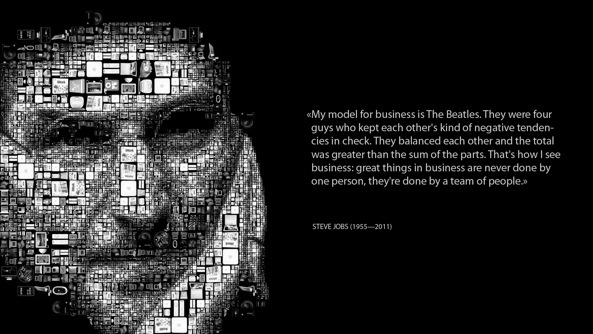Technology journalist Brent Schlender has “found” hours worth of audio interviews with Steve Jobs spanning 25 years that offer a couple interesting previously unknown tidbits about Apple’s late co-founder.
The treasure trove of Schlender’s talks with Jobs cover different milestones in Jobs’ career and expand on the previously published quotes.
For example, Jobs explains more than two decades ago how exactly he missed the importance of the network even though it was another important innovation that had been presented to him at Xerox’s Parc technology laboratory.
Writing for Fast Company, Schlender explained that a treasure trove of unearthed interviews span a period of 25 years:
I had covered Jobs for Fortune and The Wall Street Journal since 1985, but I didn’t come to fully appreciate the importance of these “lost” years until after his death last fall. Rummaging through the storage shed, I discovered some three dozen tapes holding recordings of extended interviews–some lasting as long as three hours–that I’d conducted with him periodically over the past 25 years.
Schlender highlighted eight interesting quotes that touch on the subject of Jobs’ take on business, Hollywood, technology and life in general.
While those tidbits deal with the widely reported quotes, they do expand on them to provide a better understanding of the man who built Apple from scratch only to be pushed aside and return later as a savior.
For example, you may have read how Jobs likened his business model for Apple to Beatles, from his interview with CBS’ 60 Minutes:
My model for business is The Beatles: They were four guys that kept each other’s negative tendencies in check; they balanced each other. And the total was greater than the sum of the parts. Great things in business are never done by one person, they are done by a team of people.
In an interview with Schlender in October 2004, Jobs detailed why he thought good management was like Beatles:
They sort of kept each other in check. And then when they split up, they never did anything as good. It was the chemistry of a small group of people, and that chemistry was greater than the sum of the parts. And so John kept Paul from being a teenybopper and Paul kept John from drifting out into the cosmos, and it was magic. And George, in the end, I think provided a tremendous amount of soul to the group. I don’t know what Ringo did.
Family was one thing Jobs cherished the most. According to Schlender, Jobs’ wife Laurene and his children helped him in particular during his successful business adventure with the animation studio Pixar.
In hindsight, Jobs’s having a real family might have been the best thing to happen to Pixar. He was most effective as a marketer and a business leader when he could think of himself as the primary customer.
A quote from July 1991 explains how Jobs missed the importance of the network:
The last few years at NeXT, I’ve gotten a little better glimpse of what I really saw at Xerox PARC [in 1979], which was two things. One blinded me to the other because it was so dazzling. The first, of course, was the graphical user interface.
The second thing I saw–but didn’t see–was the elaborate networking of personal computers into something I would now call ‘interpersonal computing.’ At PARC, they had 200 computers networked using electronic mail and file servers. It was an electronic community of collaboration that they used every day. I didn’t see that because I was so excited about the graphical user interface. It’s taken me, and to some extent the rest of the industry, a whole decade to finally start to address that second breakthrough– using computers for human collaboration rather than just as word processors and individual productivity tools.
Other highlights touch on the subjects of the Hollywood vs. Silicon Valley rivalry (“These are parallel universes that have less in common than one would think”), building a company (“To do anything of magnitude takes at least five years, more likely seven or eight”), Pixar and more.
My personal favorite is the Beatles quote.
As with all things in life, team works beats individualism in many aspects of our lives and I couldn’t have found a better analogy that highlights the importance of team work and balancing each other’s negative tendencies.
What’s yours?
